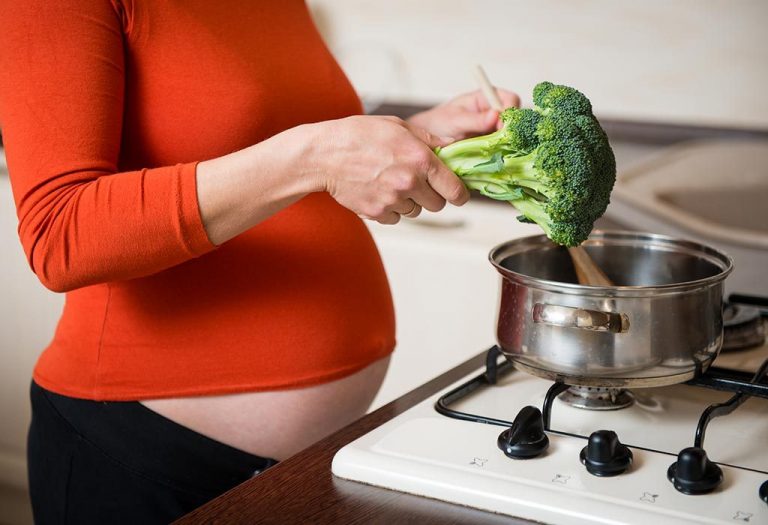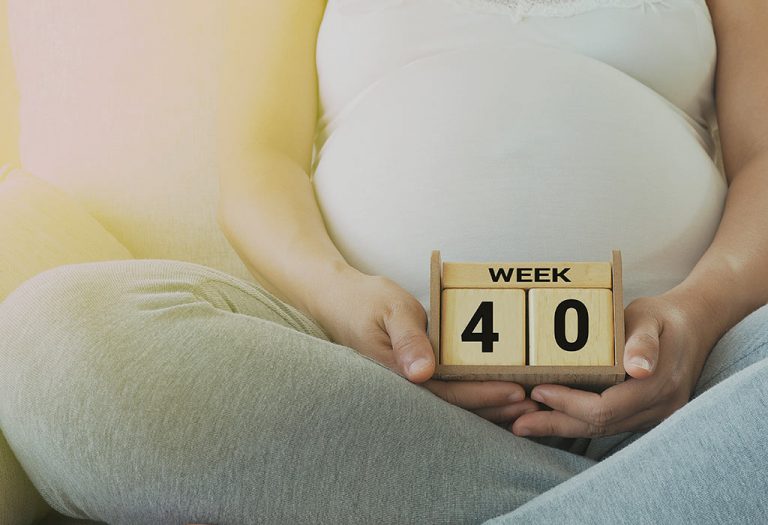Doxinate During Pregnancy – Uses, Dosage and Side Effects

All of us fall sick from time to time and keep taking pills to feel better. But if you are pregnant, you will have to give up this habit of popping pills. Taking certain medicines during pregnancy can have side effects on your body because of your weak immune system and hormonal imbalance. For instance, taking medicines for constipation can provide temporary relief, but sometimes it can lead to other issues like bloating. As morning sickness and nausea are a common symptom of pregnancy, you might be suggested Doxinate medicine for the same. But should you take this medicine? Find out all about Doxinate during pregnancy!
What Is Doxinate?
Doxinate is an oral medication available in tablets and capsules. It is a combination of Doxylamine and Pyridoxine (vitamin B6) and is used to treat vomiting and nausea during pregnancy.
Due to the physical and hormonal changes in the early pregnancy stage, nausea, morning sickness, and vomiting are common, especially in the first trimester. Doxinate also helps combat morning sickness, heartburn, and acidity. It is one of the most versatile medicines prescribed to women at any stage of their pregnancies.
Is Doxinate Safe for Pregnant Women?
As per doctors, Doxinate is safe to use during pregnancy. According to the American system of grading drugs, it falls in the category A pregnancy drug, which means it has little to no side effects. Hence, it should not cause any significant damage to you or your baby. However, it is suggested that you take this drug only when it suggested by your doctor. Furthermore, if you feel any uneasiness after taking this drug, stop using it. And, consult your health care physician for the same. Also, its over-the-counter use is not recommended.
When Should You Start and Stop Taking Doxinate During Pregnancy?
Doxinate is usually prescribed to combat or ease the symptoms of morning sickness. Morning sickness can manifest within the second week of pregnancy and continue till the 12th week. However, no two pregnancies are alike; many women may have morning sickness from the 6th week. And how long should you continue taking this medicine will depend on your condition. If you are taking this drug, discuss with your doctor on how and when you can stop it, and if you can do without it.
How to Take Doxinate Tablet in Pregnancy
Always consult your doctor before starting Doxinate. The dose of Doxinate in pregnancy and frequency will depend on the severity of your symptoms and your individual health needs. The typical dose of Doxinate during pregnancy starts with two tablets daily, taken at bedtime. If symptoms persist, the dosage can be adjusted to four tablets per day—one in the morning, one in the afternoon, and two at bedtime for maximum effectiveness. If discomfort continues despite taking the medication, it is essential to consult an obstetrician or gynecologist for further evaluation.
Side Effects of Taking Doxinate
Although Doxinate has been classified as a safe drug, it has its own side effects. These side effects are usually mentioned on the packaging of the medicine and may interfere with your daily activities. Some of the Doxinate tablet side effects during pregnancy include:
Some side effects can be caused due to pre-existing conditions like:
- Asthma
- Glaucoma
- Bronchitis
- Any impairment of the airways
Consult your physician if you experience any of the side effects or if there is some discomfort during the time you take tablets. Before taking the medicines, please consult a doctor and discuss all pre-existing conditions if you have so that the doctor can give you an informed opinion.
What If You Don’t Treat Morning Sickness?
Morning sickness can be an extremely uncomfortable condition to manage during pregnancy. It can be difficult to deal with morning sickness without taking medication and rest. If left untreated, morning sickness can result in:
- Extreme dehydration
- Keep you from digesting your food
- Constantly keep you nauseous
- Decrease your food levels by keeping your appetite lower than it should be
- Vertigo and dizziness
Doxinate can help manage this while also fighting constipation in the later stages of pregnancy.
It is estimated that over 70% of women have the problem of constipation and morning sickness during pregnancy, and 5 out of 10 women find morning sickness unbearable and take days off work to recuperate from it. Using medication can help treat morning sickness and constipation to an extent. However, you should take medicines only if they are prescribed by your doctor. Do not self-medicate, and do not share your medicines with anyone else unless they are on the same medication as you.
FAQs
1. Should Doxinate be taken before or after meals?
Doxinate is usually recommended to be taken on an empty stomach, as it works best this way. However, your doctor might adjust the timing based on your specific symptoms and needs.
2. Is it safe to take Doxinate for a long time during pregnancy?
The safety of long-term use of Doxinate depends on the individual’s condition. While it is considered safe for short-term use, prolonged usage should only be done under medical guidance to avoid any potential risks.
3. Can Doxinate be taken with other prenatal supplements?
Yes, Doxinate can typically be taken alongside prenatal vitamins or iron supplements, but it’s important to maintain the recommended timing and dosage as advised by your doctor.
4. What should I do if I miss a dose of Doxinate?
If you miss a dose, take it as soon as you remember. If it’s close to your next scheduled dose, skip the missed dose and continue with your regular schedule. Avoid doubling up to make up for a missed dose.
This was all about Doxinate medicine during pregnancy. In the later stages of pregnancy, Doxinate can help combat constipation and heartburn. But it is highly recommended that you understand the need for and usage of this medicine by talking to your health care provider before taking it.
References/Resources:
1. Nuangchamnong. N; Niebyl. J; Doxylamine succinate–pyridoxine hydrochloride (Diclegis) for the management of nausea and vomiting in pregnancy: an overview (International Journal of Women’s Health); National Library of Medicine; https://pmc.ncbi.nlm.nih.gov/articles/PMC3990370/; April 2014
2. Ebrahimi. N, Maltepe. C, Einarson. A; Optimal management of nausea and vomiting of pregnancy; National Library of Medicine; https://pmc.ncbi.nlm.nih.gov/articles/PMC2990891/; August 2010
3. Koren. G, Clark. S, Hankins. G, Caritis. S, et al.; Maternal safety of the delayed-release doxylamine and pyridoxine combination for nausea and vomiting of pregnancy; a randomized placebo-controlled trial (BMC Pregnancy and Childbirth); National Library of Medicine; https://pmc.ncbi.nlm.nih.gov/articles/PMC4391332/; March 2015
4. Persaud. N, Chin. J, Walker. M; Should Doxylamine-Pyridoxine Be Used for Nausea and Vomiting of Pregnancy?; Journal of Obstetrics and Gynaecology Canada; https://www.jogc.com/article/S1701-2163(15)30611-3/fulltext; April 2014
5. Schleußner. E, Jäkel. S, Keck. C, Kuhlmann. K; Nausea and Vomiting of Pregnancy and its Management with the Dual-Release Formulation of Doxylamine and Pyridoxine; ResearchGate; https://www.researchgate.net/publication/378081672_Nausea_and_Vomiting_of_Pregnancy_and_its_Management_with_the_Dual-Release_Formulation_of_Doxylamine_and_Pyridoxine; February 2024
6. Bérard. A, Sheehy. O, Gorgui. J, Zhao. P, et al.; New evidence for concern over the risk of birth defects from medications for nausea and vomiting of pregnancy (Journal of Clinical Epidemiology); Science Direct; https://www.sciencedirect.com/science/article/abs/pii/S0895435618310643; December 2019
6. Doxylamine and pyridoxine (oral route); Mayo Clinic; https://www.mayoclinic.org/drugs-supplements/doxylamine-and-pyridoxine-oral-route/description/drg-20060896
Also Read:
Taking Labetalol in Pregnancy
Are Allergy Medications Safe in Pregnancy
What Medicines to Avoid Wwile Pregnant
Should You Take Omeprazole during Pregnancy
Was This Article Helpful?
Parenting is a huge responsibility, for you as a caregiver, but also for us as a parenting content platform. We understand that and take our responsibility of creating credible content seriously. FirstCry Parenting articles are written and published only after extensive research using factually sound references to deliver quality content that is accurate, validated by experts, and completely reliable. To understand how we go about creating content that is credible, read our editorial policy here.




































